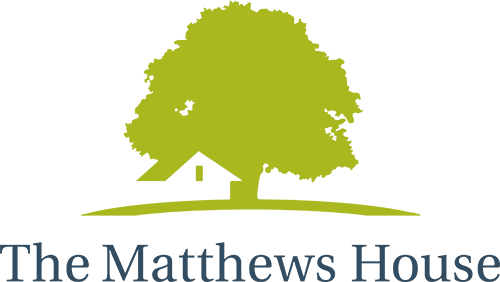HOST Homes
Our HOST Home Program started in 2014. A HOST Home is a short-term voluntary placement for young adults, ages 18 – 21, who are at risk of being homeless or are currently homeless. The goal is to provide a safe, temporary, welcoming space for up to 6 months where the young adult has time […]
Meet our Executive Program Director
At The Matthews House, one of our greatest assets is our staff! Our compassionate and resourceful direct service and administrative staff work every day toward our overall goal of disrupting cycles of poverty and abuse. Nicole Armstrong, Executive Program Director, has been with us almost since the beginning. She started as a direct service worker […]
Youth Advisory Board
About 8 years ago, The Matthews House created a Youth Advisory Board (YAB). The Youth Advisory Board works with the Department of Human Services (DHS) because the voice of the youth impact how DHS makes decisions. Our Youth Advocate on staff was youth in the system herself and understands what those involved in Youth Advisory […]
Executive Function & Childhood Trauma
Executive Function Executive function is a term described as the ability to regulate goal-oriented abilities, control behavior, choose thoughtfully, and control emotions. Executive functions serve as the building blocks of cognitive abilities such as problem solving, decision making, focus, and planning. Impaired executive functions can be directly linked to ADHD as many symptoms are […]
More Than Just Homework Help
Homework Helpers is one of the services offered within the Building Community Program at The Matthews House. It started in August of 2013 and at first, two college student interns ran the program two days a week at one of our Community Life Center (CLC) sites. After 2014, Homework Helpers began running 5 days a […]
Building Community
When the Building Community Program started in 2012, only one service was offered. Today, the Building Community Program offers a variety of services to include a broader population of community members. One of our directors took the time to explain more about what program has to offer the community! When did the Building Community Program […]
Be a Mentor!
Through The Matthews House Mentor Program, we pair youth with adult volunteers in our community to establish mentor-mentee relationships. The purpose of our Mentor Program is to provide additional supports to at-risk youth to help them improve social and emotional development. Mentors provide youth with positive experiences to build strong relationships and instill confidence. […]
English as a Second Language
The basic definition of ESL (English as a Second Language) classes is simple: they are educational programs that provide students with the ability to work with a bilingual teacher to learn English. Because we live in a multicultural community, programs for individuals to learn English are incredibly important for success both economically and socially. […]
Guys & Girls Groups
Our Experiential Education program is one of the wrap-around services offered to participants at The Matthews House, which includes fun, engaging groups for the youth. Two of these are Guys and Girls Groups, which allow youth to participate in organized activities where they can connect with others and grow in areas like self-esteem, perseverance, […]
The CCR Program
The Colorado Community Response (CCR) Program, which is statewide, is implemented in Larimer County through The Matthews House. CCR is a prevention program that works with families originally called into the child welfare system, but ultimately not required to engage in its services. Our CCR staff take on these families in Larimer County as clients, […]




